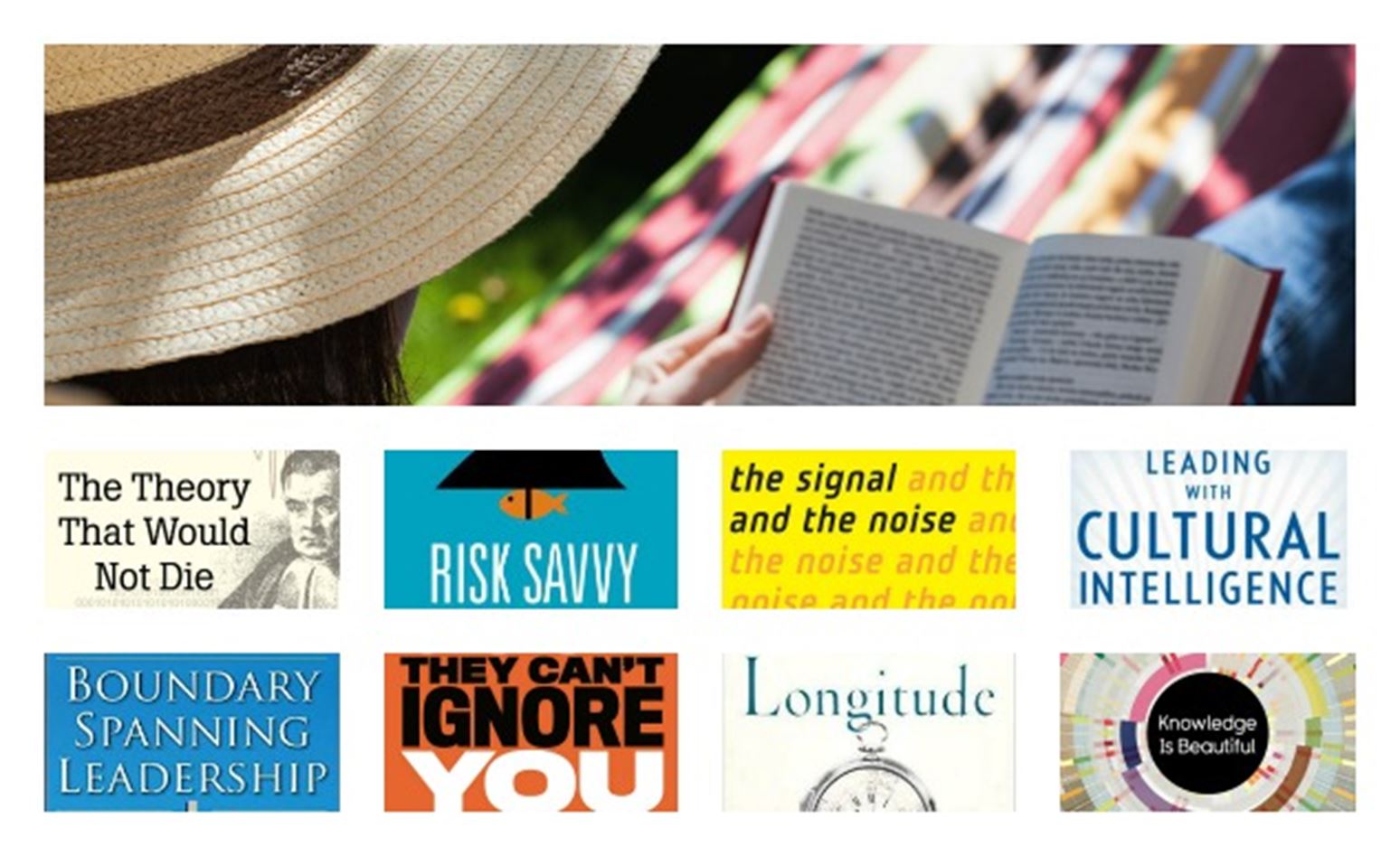We reached out to Ivey faculty members to get their top book recommendations for business buffs this summer. Here’s a look at the diverse suggestions we received.
The Theory That Would Not Die
by Sharon Bertsch McGrayne
Management Science Professor Peter Bell selected The Theory That Would Not Die:How Bayes' Rule Cracked the Enigma Code, Hunted Down Russian Submarines, and Emerged Triumphant from Two Centuries of Controversy for a great summer read on the story of Thomas Bayes.
Bell wondered, How do humans process new information? When should new information change our understanding and our decisions? Reverend Thomas Bayes proposed a solution to this issue in the mid-1700s, and it became known as Bayes’ Theorem.
“This book provides an entertaining look at the history of a key development in business analytics that has (again!) changed the way we look at fundamental human processes,” said Bell.
Risk Savvy: How to Make Good Decisions
by Gerd Gigerenzer
Assistant Professor in Marketing Neil Bendle suggested Risk Savvy by Gerd Gigerenzer, which examines how we make decisions.
“Gigerenzer shows how misunderstanding risk and uncertainty leads to bad decisions in fields from finance, to romance, to law,” said Bendle. “His work on doctors’ misinterpretation of patient survival rates is especially alarming. Gigerenzer, however, doesn’t just list our mistakes. He has practical advice on how to improve decision-making.”
Bendle commended Risk Savvy for being not only academically rigorous, but an entertaining and highly practical read.
“After reading it, you will make better decisions,” he said.
The Signal and the Noise
by Nate Silver
New York Times bestseller The Signal and the Noise was a top pick from Business Economics and Public Policy Assistant Professor Adam Fremeth.
“We spend so much of our time trying to make predictions on future states of the world, but as Nate Silver points out in this book, it’s practically impossible to do it right in so many cases,” said Fremeth.
“Success too often gets equated with foresight although it really has much more to do with probabilities. The nice thing about the book is that the story is ongoing and the topic is covered nicely on Silver’s blog site.”
Leading with Cultural Intelligence: The New Secret to Success
by David Livermore
Organizational Behaviour Assistant Professor Lynn Imai recommended Leading with Cultural Intelligence, an eye-opening read about how culturally-intelligent leaders plan, think, and behave differently.
“What does it take to effectively navigate different cultures from around the world as a leader?” asked Imai. “Why is it that the most socially skilled, the most emotionally intelligent, or the most charismatic leaders often fail, and sometimes it’s the wallflowers that succeed in intercultural situations?”
To answer these questions, Imai said Livermore points to the benefits of cultural intelligence.
“The key is to have cultural intelligence, the ability to effectively adapt to different cultures, a critical skill that must complement technical skills for any leader in this era of globalization,” said Imai.
Boundary Spanning Leadership
by Chris Ernst and Donna Chrobot-Mason
Leadership Professor Alison Konrad suggests reading Boundary Spanning Leadership, which delves into the power of teamwork.
“[It focuses on why] building a culture of teamwork supports bottom-line business success, based on case studies and research from thousands of practicing managers, ” she said. “The evidence-based nature of the arguments, combined with illustrative cases, demonstrates the key conceptual points.”
So Good They Can't Ignore You: Why Skills Trump Passion in the Quest for Work You Love
by Cal Newport
For those who may be stressing about what career path to choose, or looking for a change, Entrepreneurship Associate Professor Rob Mitchell recommends So Good They Can’t Ignore You.
“Creating value, wherever we are, is hard work and often requires us to do some things that we may not be good at and may not enjoy," said Mitchell. "But as Newport describes: ‘If you want to love what you do, abandon the passion mindset ('what can the world offer me?'), and instead adopt the craftsman mindset ('what can I offer the world?')'. This switch in thinking can offer a nice kickstart to our own personal development and satisfaction.”
Longitude: The True Story of a Lone Genius Who Solved the Greatest Scientific Problem of His Time
by Dava Sobel
Entrepreneurship Assistant Professor Larry Plummer picked his favourite non-fiction book, Longitude.
“It is a great true story of technological innovation, passion, perseverance, personal sacrifice and triumph, heroes and villains, and political intrigue,” said Plummer.
The story of Longitude follows the journey of John Harrison, who invented a series of revolutionary sea clocks as a method for determining longitude at sea.
“[Harrison’s story] helps illustrate concepts such as technology S-curves, the pros and cons of government support for research and development, the effect of decision-making biases on problem-solving, and the economic and social impact of diffusion,” said Plummer.
Knowledge is Beautiful
by David McCandless
Communications Lecturer Mary Weil is currently immersed in Knowledge is Beautiful, which is a sequel to The Visual Miscellaneum, which she has also read.
“Both books are visual, data-driven romps through health, politics, money and food,” said Weil. “McCandless has built on his prowess in creating infographics that take complex information and distill that data into bite-sized portions. Similar to the first volume, there are several graphics that, once seen, remain fixed in my mind. I intend to dip into Knowledge is Beautiful throughout the summer when I feel the need to be inspired to create something more beautiful.”



